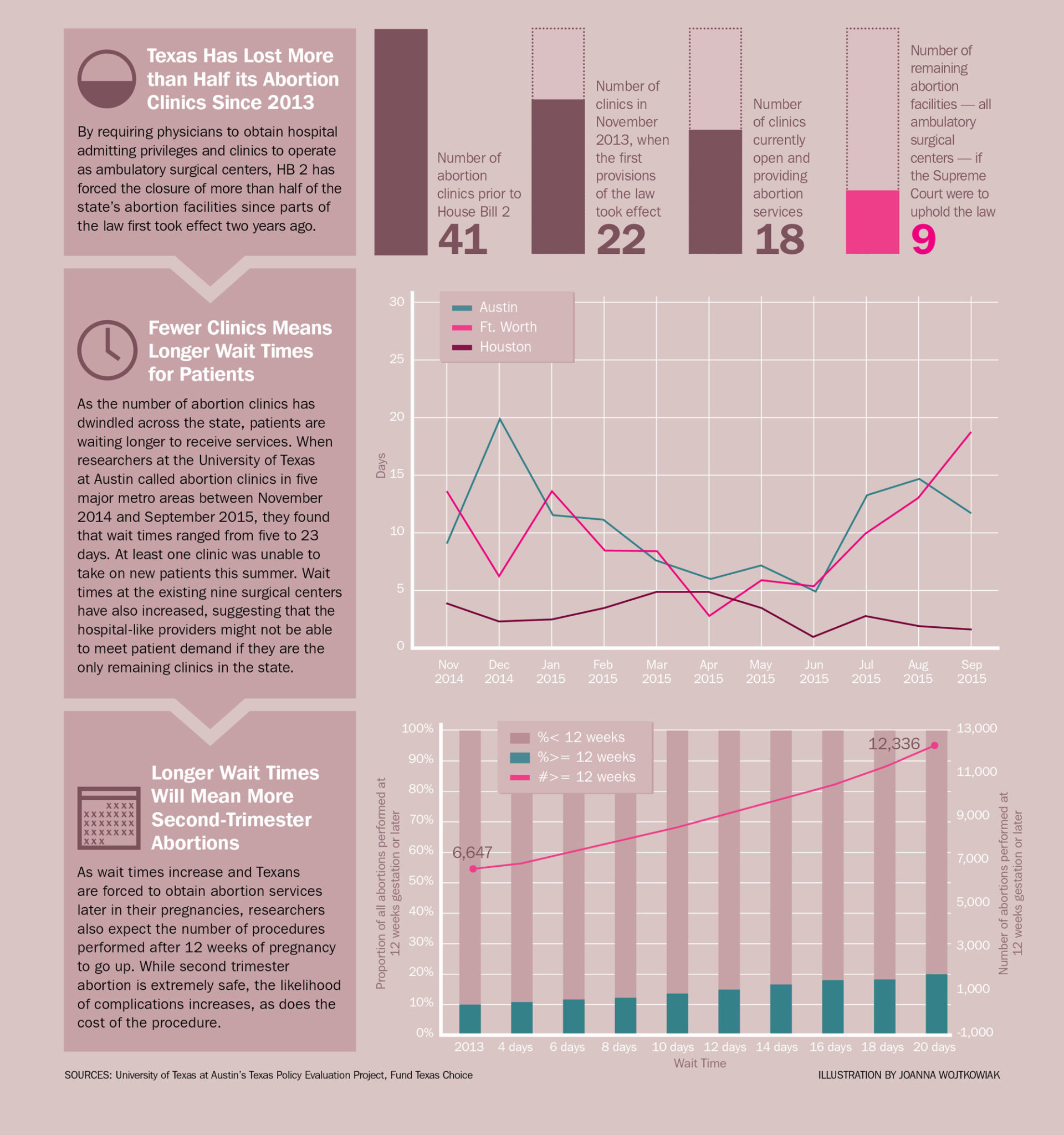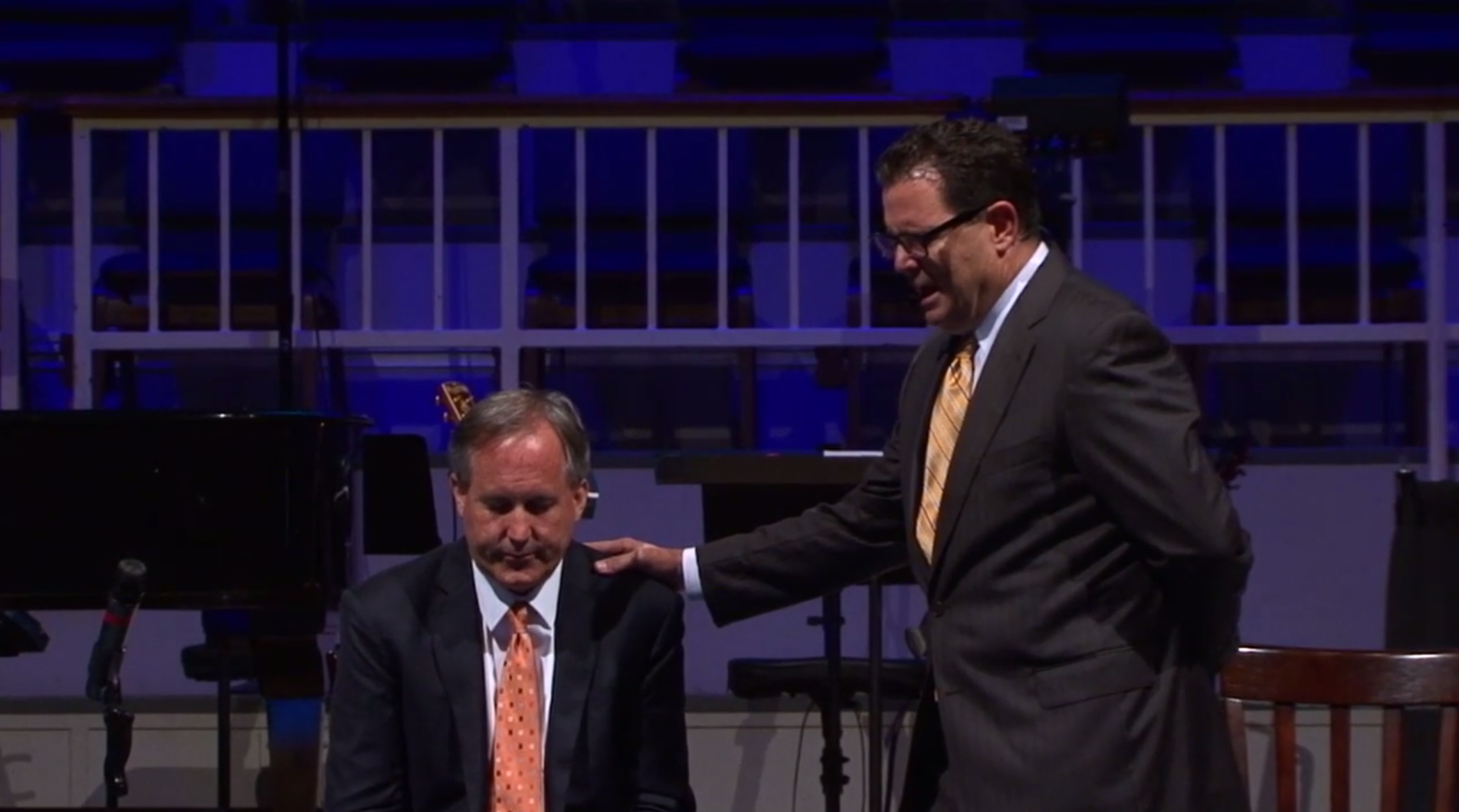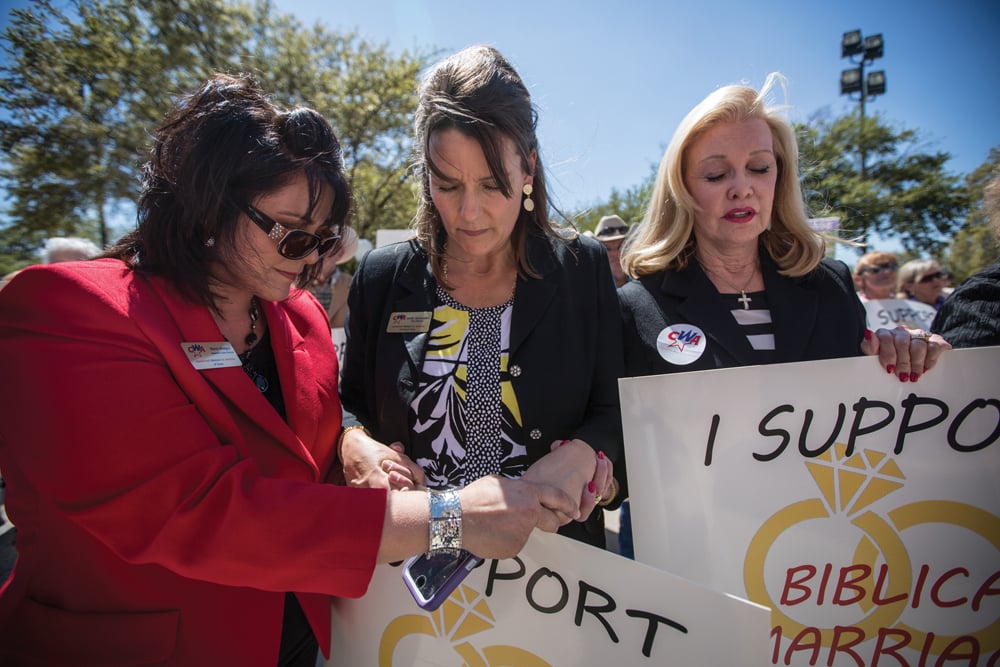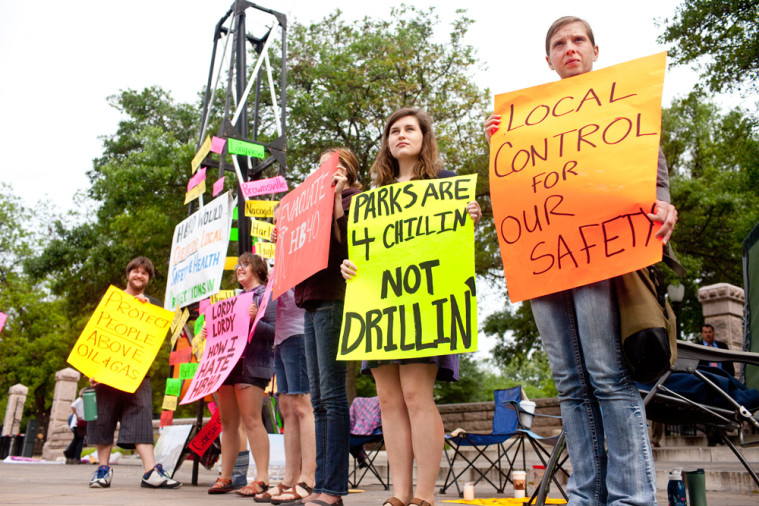
Democrats Cave on Measure Overturning Fracking Regulations

Despite vociferous opposition from local elected officials, environmentalists and citizens, many Democrats in the Texas Legislature are supporting controversial legislation that would strip local governments of the power to regulate or ban fracking.
House Bill 40, by Rep. Drew Darby (R-San Angelo), is one of 11 measures in the Legislature filed in response to a fracking ban approved by Denton voters in November. Darby’s bill, which was temporarily delayed on Tuesday, would overturn Denton’s fracking ban, Dallas’ de facto prohibition on drilling and other cities’ oil and gas regulations, possibly even rules about the distance between rigs and homes not deemed “reasonable.”
Rep. Senfronia Thompson, a progressive Democrat and the longest-serving woman legislator in the House, is one of eight Democrats sponsoring the legislation.
“I think that fracking is a safe mechanism, which they can use to be able to extract oil,” she said. Asked about the practical impact of the bill and whether it would allow oil and gas companies to challenge ordinances they don’t deem “reasonable,” Thompson said, “You’re asking me a legal question, and I haven’t had oil and gas law since I was in law school.”
Most of the Democrats who signed onto HB 40 are from areas that don’t contend with the hazards of urban drilling: earthquakes, noise, pipelines through yards and air and water pollution. None are from North Texas, where drilling rigs and other oil-and-gas infrastructure often sits uncomfortably close to homes, churches and businesses.
“The cities are the ones who are truly affected, and we’re taking that out of their hands and saying that we’re going to be the ones doing it?” said Rep. Nicole Collier, a Democrat from Fort Worth who plans to vote against HB 40. “They’re the ones who have to answer every day, and we’re taking that out of their hands.”
On Monday night, activists set up a 15-foot mock drilling rig outside the Capitol and staged an all-night vigil in preparation for the vote that was expected to happen Tuesday. A technical error forced legislators to postpone HB 40, which likely will be back on the floor as soon as Friday.
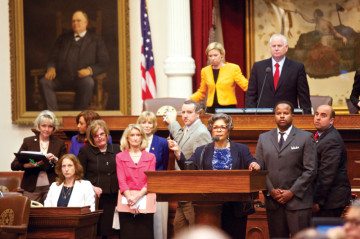
Collier said she hopes to add a provision to the bill that would reimburse cities for costs associated with accidents, such as the leaking gas well that led to an evacuation of hundreds of Arlington residents over the weekend. But the Texas Municipal League, the Texas Oil and Gas Association and Darby have pledged to support the current version of the bill and oppose any changes. The municipal league, which represents local government, wrote on its website that “it’s nearly certain that further amendments to the bill would make it worse instead of better.”
In the Senate, a similar bill was unanimously voted out of committee in March. Two Democrats, Sen. Judith Zaffirini (D-Laredo) and Sen. Carlos Uresti (D-San Antonio) voted for SB 1165. Zaffirini represents a portion of the Eagle Ford Shale, one of the most active shale plays in the world. She chairs the booster-ish Eagle Ford Shale Legislative Caucus.
Why would Democrats, who’ve complained all session that Republicans are eroding the long Texas tradition of local control, support HB 40?
“Because they can and not have any harm,” Collier said, referring to blowback from constituents.
Former Fort Worth state Rep. Lon Burnam, now a volunteer lobbyist with Public Citizen, had some tough words for his former colleagues. “These people have been here too long and have become jaded,” he said.
He said Democratic support for overturning fracking regulations is testament to the financial power of the oil and gas industry. Oil and gas interests donated $5.5 million to legislators in the 2014 cycle, according to a recent Texans for Public Justice report, about 17 cents of every dollar contributed during that period.
Environmentalists complain that banning fracking bans not only endangers the health and safety of citizens but also constitutes an assault on local democracy. If passed, HB 40 would overturn the Denton and Dallas measures that ban fracking. It’s also expected to invalidate many other municipalities’ ordinances governing fracking.
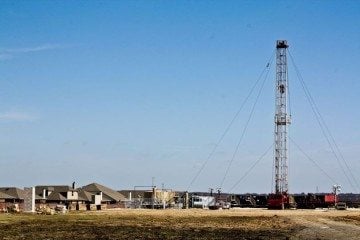
Supporters of the bill, backed by the power and money of the Texas oil and gas industry, argue that the Railroad Commission’s authority to regulate oil and gas operations preempts local governments from being able to ban or otherwise impede the practice.
The bill uses broad and convoluted language to describe allowable city ordinances. Only “commercially reasonable” laws pass muster. Cities also could only set rules for activities “at or above the surface of the ground”—the bill specifically mentions noise, lights, traffic and fire and emergency response—and the rules couldn’t prohibit a “reasonably prudent operator” from extracting oil or gas. Ordinances that have been in effect for five years and have allowed “oil and gas operations … to continue during that period” would generally be considered “commercially reasonable.” Got all that?
Opponents argue that industry attorneys will use the language to topple any rule they don’t like and take down established ordinances wherever they like.
Andrew Dobbs, who organized the Monday night vigil for Texas Campaign for the Environment, said he was frustrated to see Democrats playing along.
“I hear Democrats in this state say all the time, ‘If only we could get people to go out and vote for us, if only people didn’t stay home on Election Day,’ and then they go and do stuff like this and they wonder why people don’t want to vote for them,” he said.
